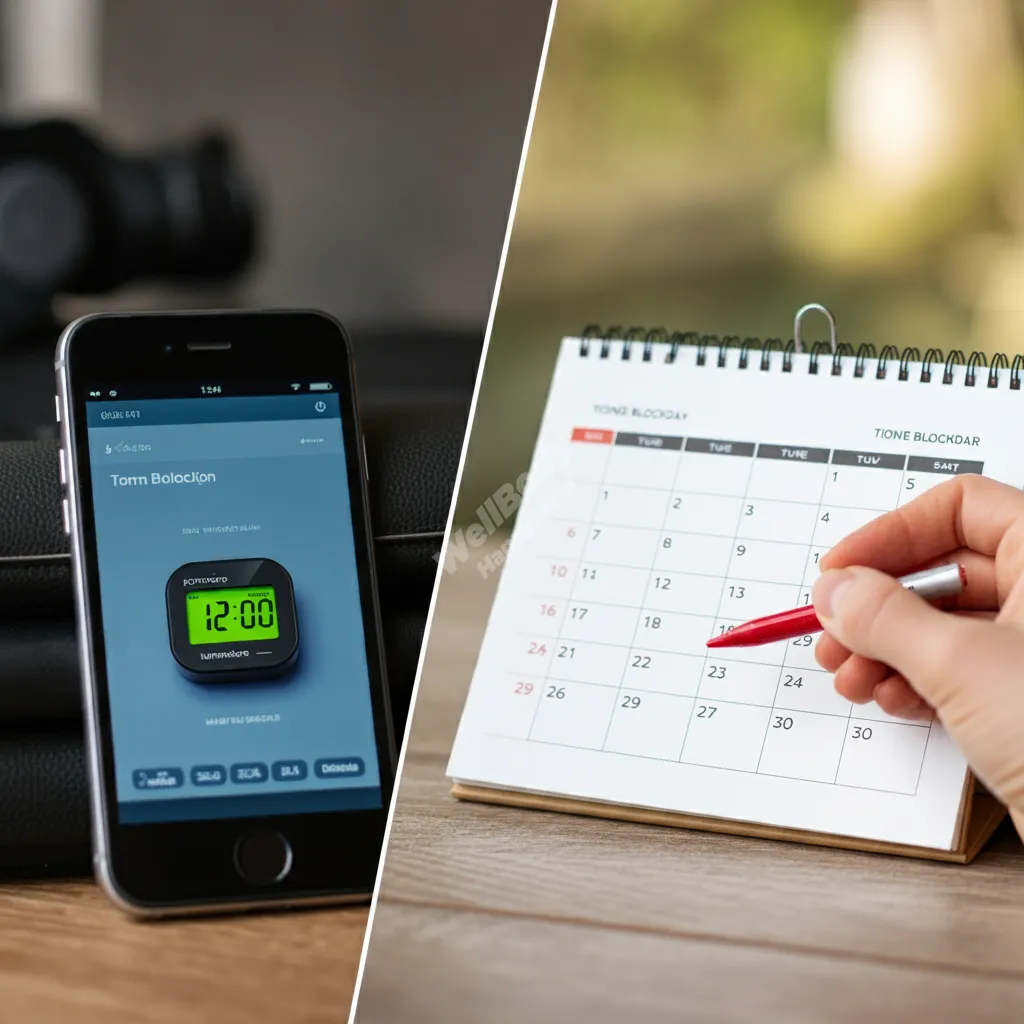Work-Life Balance: Mental Health Tips for Professionals

Did you know that 83% of US workers suffer from work-related stress? This startling statistic highlights the critical need for better work-life balance strategies in today’s fast-paced professional world. As the lines between work and personal life continue to blur, especially in the age of remote work, maintaining good mental health has become more challenging than ever.
In this article, we’ll explore effective coping strategies for professionals to balance their work and mental health. Whether you’re feeling:
- Overwhelmed
- Anxious
- Or simply looking to improve your overall well-being
These practical tips will help you navigate the complexities of modern work life and find harmony between your professional and personal worlds.
Understanding the Work-Mental Health Connection
The relationship between work and mental health is complex and deeply intertwined. When we spend a significant portion of our lives at work, it’s natural that our jobs can greatly impact our overall well-being.
Work stress can affect our mental health in several ways:
- Increased anxiety: Tight deadlines, high-pressure situations, and demanding workloads can lead to persistent worry and tension.
- Depression: Feeling undervalued, overworked, or stuck in a job you dislike can contribute to feelings of sadness and hopelessness.
- Burnout: Chronic workplace stress can result in physical and emotional exhaustion, cynicism, and reduced professional efficacy.
According to the World Health Organization, depression and anxiety cost the global economy an estimated $1 trillion per year in lost productivity. This staggering figure underscores the importance of addressing mental health in the workplace.
Moreover, a study by the American Psychological Association found that 59% of employees have experienced negative impacts of work-related stress, including:
- Lack of interest, motivation, or energy (26%)
- Difficulty focusing (21%)
- Difficulty completing work on time (19%)
By understanding this connection, we can better appreciate the need for effective strategies to cope with work-related stress and maintain good mental health.
Recognizing the Signs of Work-Related Stress

Being able to identify the signs of work-related stress is crucial for maintaining your mental health. Early recognition allows you to take action before the stress becomes overwhelming. Here are some common symptoms to watch out for:
Physical signs:
- Headaches
- Muscle tension or pain
- Fatigue
- Sleep problems
- Stomach issues
Emotional signs:
- Irritability or short temper
- Anxiety or feeling overwhelmed
- Lack of motivation
- Mood swings
- Feeling sad or depressed
Behavioral signs:
- Withdrawing from responsibilities
- Procrastination
- Using alcohol, drugs, or food to cope
- Decreased productivity
- Conflicts with coworkers or family
Self-Assessment Checklist:
Ask yourself these questions to gauge your stress levels:
- Do you often feel overwhelmed by your workload?
- Are you having trouble sleeping or experiencing changes in your appetite?
- Do you find it difficult to concentrate on tasks?
- Are you more irritable or emotional than usual?
- Have you lost interest in activities you used to enjoy?
If you answered “yes” to two or more of these questions, you might be experiencing significant work-related stress. Remember, recognizing these signs early is the first step towards managing your stress and maintaining good mental health.
Effective Coping Strategies for Professionals
1. Establishing Boundaries

Setting clear work-life boundaries is crucial for maintaining your mental health. In today’s always-connected world, it’s easy for work to spill over into personal time. Here are some tips to create a healthy work-life separation:
- Set specific work hours and stick to them
- Create a dedicated workspace at home
- Turn off work notifications after hours
- Learn to say “no” to non-essential tasks
- Take regular breaks during the workday
Remember, boundaries protect your personal time and help prevent burnout.
2. Time Management Techniques

Effective time management can significantly reduce stress and improve productivity. Two popular methods are:
- Pomodoro Technique: Work in focused 25-minute blocks, followed by short breaks.
- Time Blocking: Schedule specific tasks for set periods throughout your day.
These techniques help you stay focused and avoid feeling overwhelmed by your workload.
3. Mindfulness and Meditation

Mindfulness practices can help reduce stress and improve mental clarity. Try these simple exercises:
- Deep breathing: Take 5 deep breaths, focusing on your inhales and exhales.
- Body scan: Spend 2 minutes noticing sensations in your body, from head to toe.
- Mindful observation: Choose an object and observe it in detail for 1 minute.
Even a few minutes of mindfulness each day can make a significant difference in managing work-related stress.
4. Regular Exercise and Physical Activity
Physical activity is a powerful stress-buster and mood-booster. It’s closely linked to improved mental well-being. Here are some ways to incorporate exercise into your busy schedule:
- Take a brisk walk during your lunch break
- Use a standing desk or do desk exercises
- Join a gym near your workplace
- Try yoga or stretching before or after work
- Bike or walk to work if possible
Even short bursts of activity can make a significant difference in your stress levels and overall health.
5. Building a Support Network

Strong social connections at work can provide emotional support and help manage stress. Try these tips:
- Join or start a workplace social group
- Attend company events or team-building activities
- Reach out to colleagues for coffee or lunch
- Participate in mentoring programs
- Share your experiences with trusted coworkers
Remember, you’re not alone in facing work challenges. A supportive network can make a big difference.
6. Seeking Professional Help

Sometimes, self-help strategies aren’t enough. It’s important to recognize when to seek professional support. Consider these options:
- Therapy or counseling: A mental health professional can provide tailored strategies for managing work-related stress.
- Employee Assistance Programs (EAPs): Many companies offer free, confidential counseling services. Check with your HR department for information.
- Career coaching: If job dissatisfaction is a major source of stress, a career coach can help you explore your options.
Remember, seeking help is a sign of strength, not weakness. It’s an important step in maintaining your mental health and work-life balance.
Creating a Mental Health-Friendly Workplace

While individual strategies are crucial, employers also play a vital role in supporting mental health at work. A supportive work environment can significantly reduce stress and improve overall well-being. Here are some suggestions for creating a mental health-friendly workplace:
- Open communication: Encourage honest discussions about mental health and work-life balance.
- Flexible work arrangements: Offer options like remote work or flexible hours when possible.
- Mental health training: Provide workshops on stress management and mental health awareness.
- Wellness programs: Implement initiatives like yoga classes, meditation sessions, or fitness challenges.
- Reasonable workloads: Ensure tasks and deadlines are manageable and realistic.
- Regular check-ins: Schedule one-on-one meetings to discuss workload and any concerns.
- Quiet spaces: Designate areas for relaxation or meditation during breaks.
- Recognition and appreciation: Regularly acknowledge employees’ efforts and achievements.
- Clear policies: Establish and communicate clear policies on work hours, overtime, and time off.
- Mental health resources: Provide easy access to mental health resources and support services.
By implementing these measures, employers can create a work environment that supports mental well-being and helps employees thrive both personally and professionally.
Developing a Personal Wellness Plan

Creating your own personal wellness plan is a proactive way to manage your mental health and maintain work-life balance. Here’s a guide to help you develop an effective strategy:
- Assess Your Current Situation
• Identify your main sources of work-related stress
• Evaluate your current coping mechanisms - Set Clear Goals
• Define what work-life balance means to you
• Establish specific, achievable mental health objectives - Choose Your Strategies
• Select coping techniques that resonate with you
• Include a mix of physical, emotional, and social activities - Create a Routine
• Schedule regular time for self-care activities
• Plan for both short daily practices and longer weekly sessions - Monitor and Adjust
• Keep track of your progress
• Be flexible and adjust your plan as needed
Sample Wellness Plan Template:
| Area | Goal | Action Steps | Frequency |
|---|---|---|---|
| Physical Health | Improve energy levels | 30-minute walk | 5 days/week |
| Mental Well-being | Reduce stress | 10-minute meditation | Daily |
| Work-Life Balance | Set boundaries | Turn off work notifications after 7 PM | Daily |
| Social Connections | Build support network | Lunch with a colleague | Weekly |
| Personal Growth | Continuous learning | Read industry articles | 3 times/week |
Remember, your wellness plan should be personalized to your needs and lifestyle. It may take some trial and error to find what works best for you, so be patient with yourself and stay committed to your well-being.
Conclusion

Balancing work and mental health is not just a luxury—it’s a necessity in today’s fast-paced professional world. By implementing the strategies we’ve discussed, you can take significant steps towards achieving a healthier, more fulfilling work-life balance.
Let’s recap the key points:
- Recognize the signs of work-related stress early
- Implement effective coping strategies like setting boundaries and practicing mindfulness
- Contribute to creating a mental health-friendly workplace
- Develop and follow a personalized wellness plan
Remember, achieving work-life balance is an ongoing process. It requires consistent effort and self-reflection. Some days will be easier than others, and that’s okay. The important thing is to keep prioritizing your mental health alongside your professional responsibilities.
As you move forward, keep these thoughts in mind:
- Small changes can make a big difference. Start with one or two strategies and build from there.
- Be patient with yourself. Developing new habits takes time.
- Seek support when needed. Whether from colleagues, friends, family, or professionals, don’t hesitate to ask for help.
By taking care of your mental health, you’re not just benefiting yourself—you’re also positioning yourself to be more productive, creative, and resilient in your professional life. Remember, a healthy mind is the foundation for both personal happiness and professional success.
Take the first step today towards better work-life balance. Your future self will thank you for it!



